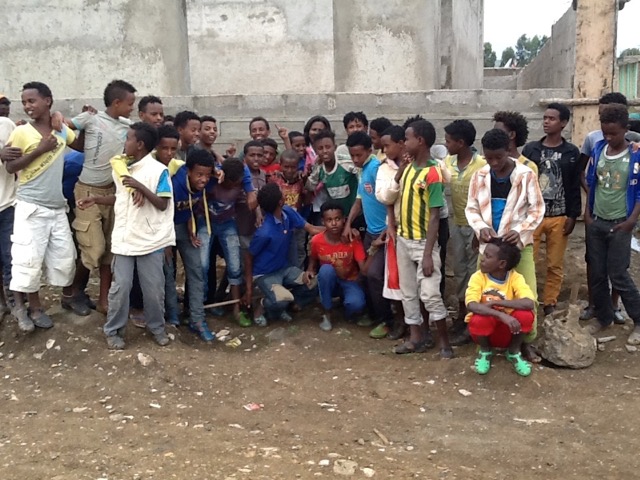In this opinion piece, Andrea Echelberger shares concrete actions teachers, program coordinators, and volunteers can take in advocacy of English language learners.
Recent political events around the immigration and refugee resettlement process have contributed to a rising sense of unease in refugee and immigrant communities. As ESL professionals, we work with children and adults whose lives and sense of safety and belonging here in Minnesota are being directly impacted. Not surprisingly, being a strong ally and advocate for and with refugee and immigrant communities is on the forefront of a lot of people’s minds right now. Many current ESL volunteers and supporters have been reaching out to ABE organizations and asking for concrete ideas to welcome and support the refugee and immigrant communities in Minnesota. In response to these requests, the Minnesota Literacy Council initiated two panel discussions for the ESL volunteer and professional community. Allies and Advocates: Supporting Our Neighbors took place at the Minnesota Literacy Council in January 2017, and Advocacy in ABE: Supporting Programs and Learners took place at the Metro Adult Basic Education Spring Regional meeting in March 2017. Below are highlights of those discussions.
The purpose of the panels was not to answer all of the questions around the topics of advocacy and immigration, but to provide a starting point for actions and conversations. Both panels drew from a wide range of expertise in the ESL field and consisted of representatives from community and school district based programs such as CLUES, Minnesota Literacy Council, International Institute of Minnesota, Ronald M. Hubbs Center, English Learning Center, and Minnesota Department of Education. The panelists were directors, managers, teachers, and volunteers from these organizations. During the sessions, panelists shared their personal and professional observations regarding the state of adult ESL programming, and current reactions and concerns from student communities. Panelists also shared concrete recommendations for ways that adult ESL administrators, teachers, and volunteers can advocate for their programs and student communities. The discussion resulted in many useful suggestions.
Recommendations for Individuals
- Seek out multiple news sources and encourage friends and family to do the same.
- Support good journalism; subscribe or donate to local and/or national news outlets; beltmag.com/support-good-journalism has some concrete suggestions and links for additional ways to support journalism.
- Get to know your neighbors, learners, people from the community, and talk to them and find out what their concerns are.
- Go to spaces where you will meet and interact with people from other cultures and backgrounds.
- Post a sign in multiple languages in front of your house welcoming people from other cultures.
- Choose one or two main issues to focus your time, energy, and money on so that you don’t get spread too thin.
- Learn some words and phrases in another language so that you can greet people in your community in their first language.
- Educate yourself on the history and context behind current issues; read articles with concrete facts and figures to be able to participate in conversations about the issues.
- Reach out to local immigrant community organizations and find out ways that you can support and amplify the work that they are already engaged in.
Recommendations for Programs
- Use volunteers in your ESL program. ESL volunteers serve as valuable allies for immigrant and refugee communities, as well as strong advocates for ESL and ABE programming. Read more about how volunteers can help support learners and programming at Program Allies: a Case for ABE Volunteers.
- Recruit new volunteers to work with ABE learners in ESL and GED classes from groups that generally don’t have a lot of interaction with refugee and immigrant communities.
- Sit down with students and their families discover what their primary concerns are. Ask them how they would like to be supported; respect their requests and ensure that they have an active voice in suggesting solutions.
- Organize opportunities for students to learn about their rights; bring in literature and/or speakers in the first languages of students and create spaces for discussion and questions around this topic. The Advocates for Human Rights is an excellent group that will do community education sessions upon request for immigrants, refugees, and interested community members.
- Put together an event at your program that brings together ABE learners with members of the community. Consider using the Journeys Reading Event Tool Kit to provide learners an opportunity to share their stories and experiences, put together a movie night and discussion, or hold a potluck supper.
Recommendations for Legislative-Level Action
- Sign up for the new Legislative Advocacy Alerts to receive information on legislative actions that you can take to support ABE programming and ABE learners.
- Call your local and state representatives to share your opinion on issues that impact refugee and immigrant communities.
- Call your local representatives to share your support of ABE programming in Minnesota.
- Start an advocacy friend group: when there is an advocacy issue requires phone calls or letters to be written, pass the word on the people in your advocacy friend group.
Contemplating the work that lies ahead can be daunting at times; it’s critical that ESL programs and professionals continue to lead the way in advocating with and for ABE learners and immigrant and refugee communities. No one person or program will be able to do everything, but if everyone pitches in and does what work they can, together we can make a tremendous difference.
Parts of this article were originally published in the MN ABE Connect Newsletter. Access the article at What Can I Do? Suggestions from the Allies and Advocates Panel Discussion.






